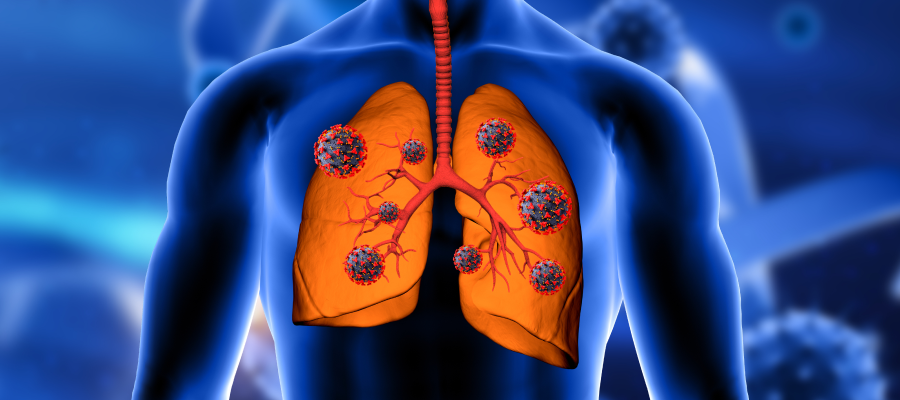The chief instigator behind lung cancer is indisputably smoking, encompassing both
active and passive exposure to tobacco smoke. However, other factors can also elevate the
risk of developing this perilous condition. These include:
Secondhand Smoke:
Regular inhalation of smoke from tobacco products,
even if not directly consumed, can substantially heighten the chances of lung cancer.
Environmental Hazards:
Prolonged exposure to harmful agents like radon
gas and asbestos can contribute to lung cancer in workplaces or living environments.
Air Pollution:
Inhaling pollutants and toxic particles present in the air
can gradually damage lung tissues, increasing vulnerability to cancerous growth.
Empowering oneself with knowledge and adopting proactive measures can play a pivotal role
in preventing lung cancer. Here's how:
Avoid Smoking:
Steer clear of tobacco in all forms, including cigarettes,
cigars, and smokeless tobacco. If you're a smoker, quitting is the single most effective step you can take.
Limit Secondhand Smoke Exposure:
Maintain smoke-free environments, both for
yourself and those around you, to minimize the risk posed by secondhand smoke.
Protective Gear:
If your occupation involves exposure to asbestos or other
hazardous substances, always use appropriate protective gear and follow safety guidelines.
Air Quality Awareness:
Stay informed about air quality levels in your area
and take precautions on days when pollution levels are high. Consider using air purifiers indoors.
Regular Check-ups:
Engage in routine medical check-ups to monitor your lung
health. If you experience persistent symptoms such as chronic cough, chest pain, or shortness of
breath, consult a healthcare professional promptly.
In the fight against lung cancer, awareness serves as a powerful ally. Educate yourself and
those around you about the risk factors and symptoms and emphasize the significance of early diagnosis.
By championing prevention and early detection, we can significantly enhance the chances of overcoming
this formidable adversary and improving survivorship rates.

Clinical Trial Information
Aliquam lacinia elementum enim, et feugiat purus lobortis et. Duis a odio mauris.
Suspendisse consectetur sapien vitae odio ultrices tempus. Integer quam metus,
posuere hendrerit iaculis eget, ornare sed lorem. Duis eu fermentum lacus. Maecenas
faucibus libero mattis risus interdum, ac molestie urna tincidunt. In elit ex,
elementum sed nulla aliquet, aliquam euismod ipsum. Nulla facilisi. Ut consequat sit
amet lacus quis iaculis. Praesent ac semper risus, id semper sem. Sed non tortor et
lectus vestibulum consectetur. Fusce tempor non metus sit amet faucibus. Morbi nulla
tortor, tincidunt interdum posuere nec, posuere id sem. Praesent id mattis leo,
tempus pretium diam. Cras et velit ac tellus egestas sollicitudin tempor a ante. In
gravida, purus quis pulvinar gravida, sapien nisi rutrum velit, vel semper orci
lectus vel leo.




